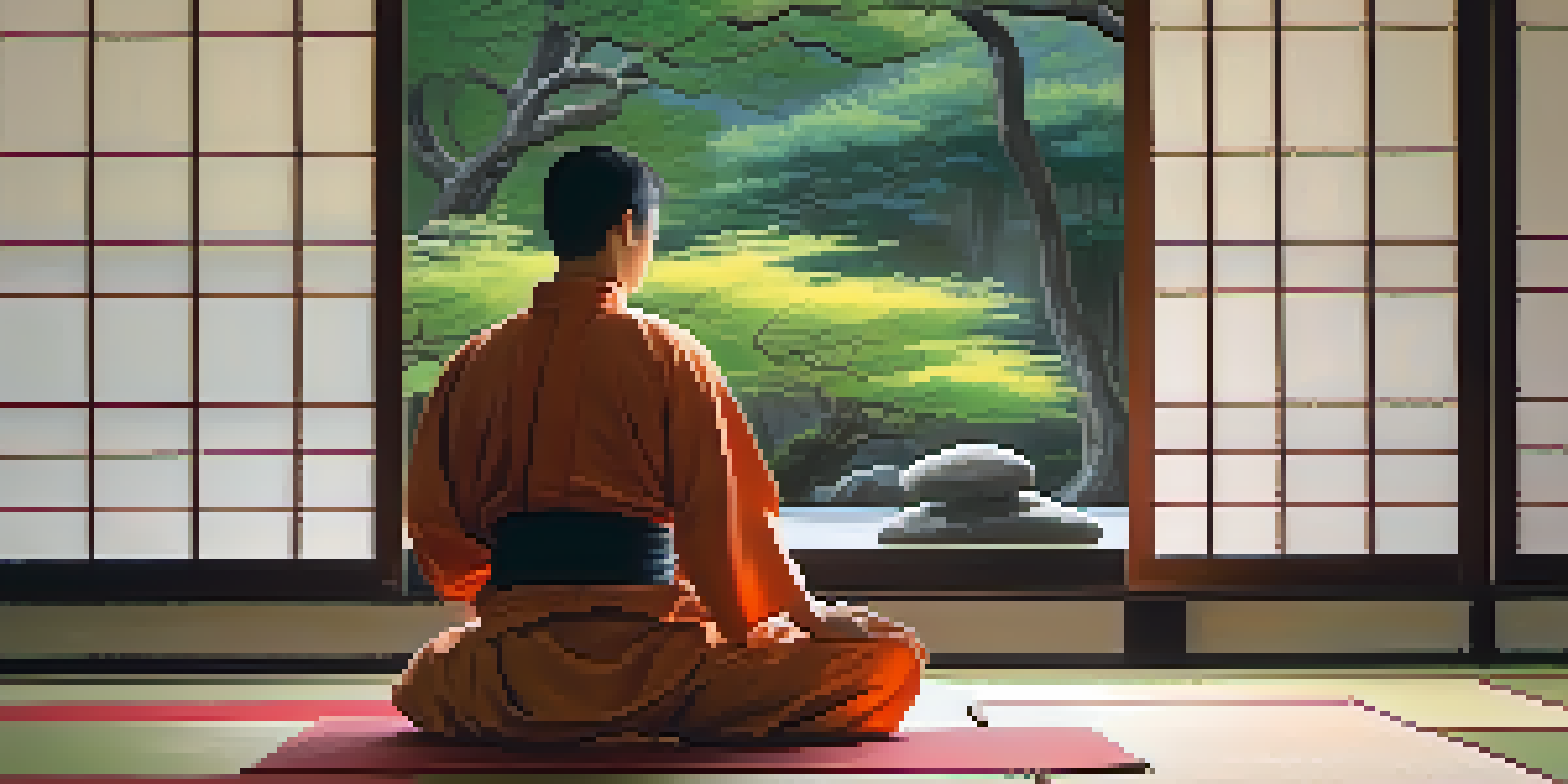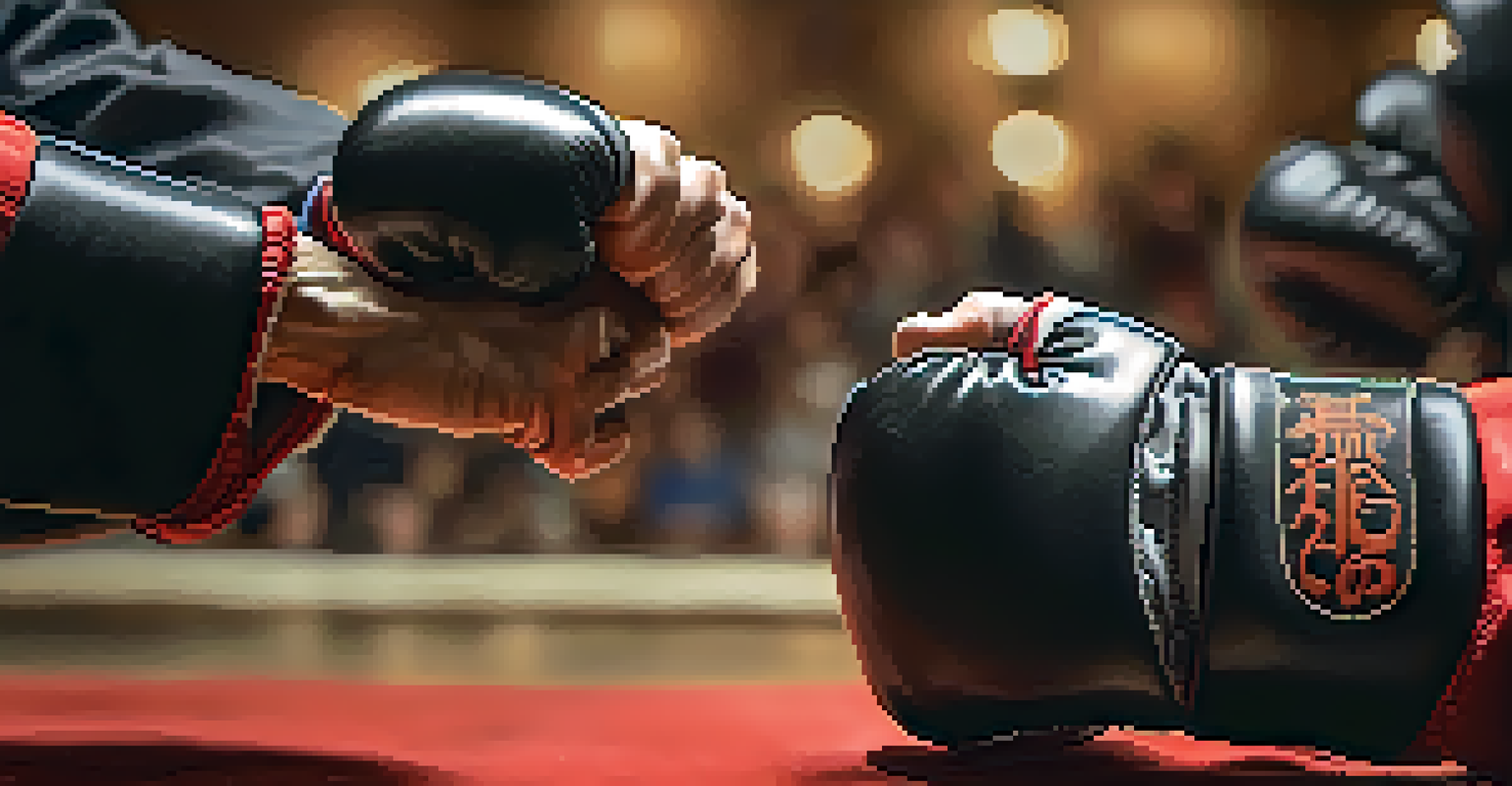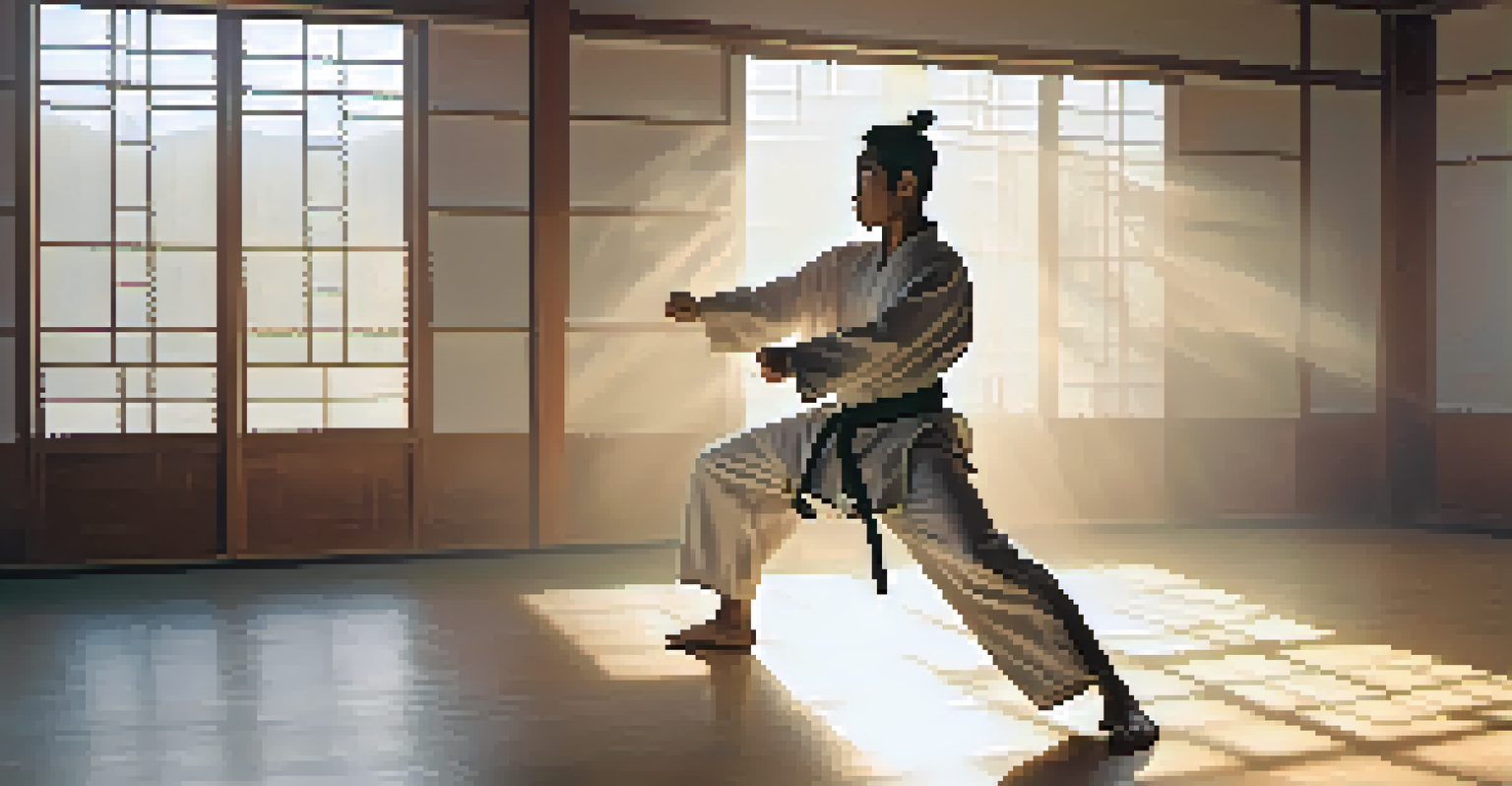Cognitive Training in Martial Arts: The Science Behind Focus

Understanding Cognitive Training in Martial Arts
Cognitive training in martial arts refers to exercises designed to improve mental functions such as focus, memory, and decision-making. Just like physical training strengthens your muscles, cognitive training sharpens your mind, helping martial artists respond swiftly and effectively in high-pressure situations. This mental conditioning is crucial, as martial arts require not only physical prowess but also strategic thinking and quick reflexes.
The mind is everything. What you think you become.
The practice of cognitive training encompasses various techniques, including visualization, mindfulness, and tactical drills. Imagine a martial artist visualizing their moves before executing them; this mental rehearsal helps solidify their techniques and enhances performance. By regularly engaging in cognitive training, martial artists develop a heightened awareness of their surroundings and opponents, which is essential for success in any combat sport.
Research shows that cognitive functions can be improved through structured training, leading to better focus and performance in martial arts. For example, studies have demonstrated that athletes who engage in cognitive training show significant improvements in their reaction times and decision-making abilities. This connection between mental training and physical execution is what sets skilled martial artists apart from the rest.
The Role of Focus in Martial Arts Performance
Focus is a foundational element in martial arts that can significantly influence an athlete's performance. Think of focus as a spotlight that illuminates what is essential while dimming distractions. When martial artists maintain their focus, they can better anticipate their opponent's moves and react more effectively, ultimately leading to improved outcomes in competitions and sparring.

In martial arts, distractions can come from various sources, including noise, unexpected movements, or even internal thoughts. Training the mind to stay focused amidst these distractions is crucial for success. Techniques such as meditation and breath control are often used to enhance focus, helping martial artists cultivate a calm and centered mindset during competition.
Cognitive Training Sharpens Performance
Cognitive training enhances mental functions like focus and decision-making, crucial for martial artists in high-pressure situations.
Moreover, focus not only impacts performance but also contributes to a martial artist's overall well-being. Practicing focus can lead to increased confidence and reduced anxiety, allowing athletes to perform at their best. As they train their minds, they also build resilience, which can be beneficial both in and out of the dojo.
Cognitive Techniques for Enhancing Focus
There are several cognitive techniques that martial artists can employ to enhance their focus. One effective method is mindfulness meditation, which encourages practitioners to center their thoughts and be fully present in the moment. This practice helps martial artists develop greater awareness, allowing them to tune into their bodies and surroundings during training and competition.
Success is where preparation and opportunity meet.
Another valuable technique is visualization, where athletes mentally rehearse their techniques and strategies. By picturing themselves performing flawlessly, martial artists can create a mental blueprint for success. This method not only boosts confidence but also reinforces muscle memory, making it easier to execute complex movements under pressure.
Incorporating these cognitive techniques into regular training routines can foster a more focused mindset. Over time, martial artists who practice these techniques will find themselves better equipped to handle distractions and maintain concentration, ultimately enhancing their overall performance.
The Science Behind Focus and Performance
Delving into the science of focus reveals fascinating insights about how the brain operates during martial arts training. Neuroplasticity, the brain's ability to reorganize itself through learning and experience, plays a vital role in cognitive training. When martial artists repeatedly practice focus-enhancing techniques, they strengthen neural connections related to concentration and decision-making.
Studies in sports psychology have demonstrated that athletes with improved focus tend to perform better under pressure. For example, brain imaging research indicates that focused attention activates specific areas of the brain associated with motor control and decision-making. This activation allows martial artists to react quickly and accurately, reinforcing the importance of cognitive training in their practice.
Focus is Key to Success
Maintaining focus allows martial artists to anticipate their opponents' moves and react effectively, positively impacting their performance.
Understanding the science behind focus can help martial artists tailor their training to maximize performance. By recognizing how different cognitive techniques influence brain function, athletes can choose the most effective methods to enhance their focus and overall capabilities in the dojo or ring.
Impact of Stress on Focus and Performance
Stress can significantly impact an athlete's ability to focus, making it a crucial factor in martial arts training. When faced with high-pressure situations, such as a competition, the body's stress response can lead to distractions and decreased performance. Understanding this relationship helps martial artists develop strategies to manage stress effectively.
Techniques such as controlled breathing and visualization can counteract the negative effects of stress. For instance, deep breathing exercises can help calm the nervous system, allowing martial artists to regain their focus. Additionally, visualizing success can create a sense of confidence, minimizing anxiety during critical moments.
By addressing stress and its impact on focus, martial artists can improve their performance and enhance their overall mental resilience. This holistic approach to training not only prepares athletes for physical challenges but also equips them with the tools to navigate mental obstacles, ultimately leading to greater success.
Building a Focused Training Environment
Creating a focused training environment is essential for martial artists looking to enhance their cognitive abilities. A well-structured space that minimizes distractions can significantly improve concentration during practice. This could include decluttering the dojo or using calming colors and lighting to promote a serene atmosphere.
In addition to the physical environment, the mental atmosphere within a training group can also influence focus. Encouraging camaraderie and mutual support among practitioners fosters a positive mindset that enhances collective concentration. When students feel supported, they are more likely to take risks and push their limits, ultimately benefiting their focus and performance.
Stress Management Boosts Focus
Effective stress management techniques, such as controlled breathing and visualization, help martial artists maintain focus and improve performance.
Furthermore, incorporating focused training sessions—where the sole goal is to enhance cognitive skills—can help athletes develop their mental acuity. These sessions might include drills designed specifically to challenge focus, such as responding to unexpected movements or maintaining concentration during complex combinations.
The Long-Term Benefits of Cognitive Training
Engaging in cognitive training within martial arts offers numerous long-term benefits that extend beyond the dojo. Improved focus translates to better performance in various aspects of life, from academics to personal relationships. As martial artists hone their cognitive skills, they develop a greater sense of discipline and resilience that can be applied to everyday challenges.
Additionally, the skills gained through cognitive training can enhance mental health and emotional well-being. Research has shown that mindfulness and focus-enhancing practices can reduce anxiety and improve overall mood. For martial artists, this means that the benefits of their training can lead to a more balanced and fulfilled life outside of martial arts.

Ultimately, the long-term advantages of cognitive training in martial arts foster a well-rounded individual. As practitioners continue to develop their focus, they not only elevate their martial arts performance but also cultivate valuable life skills that contribute to personal growth and success.